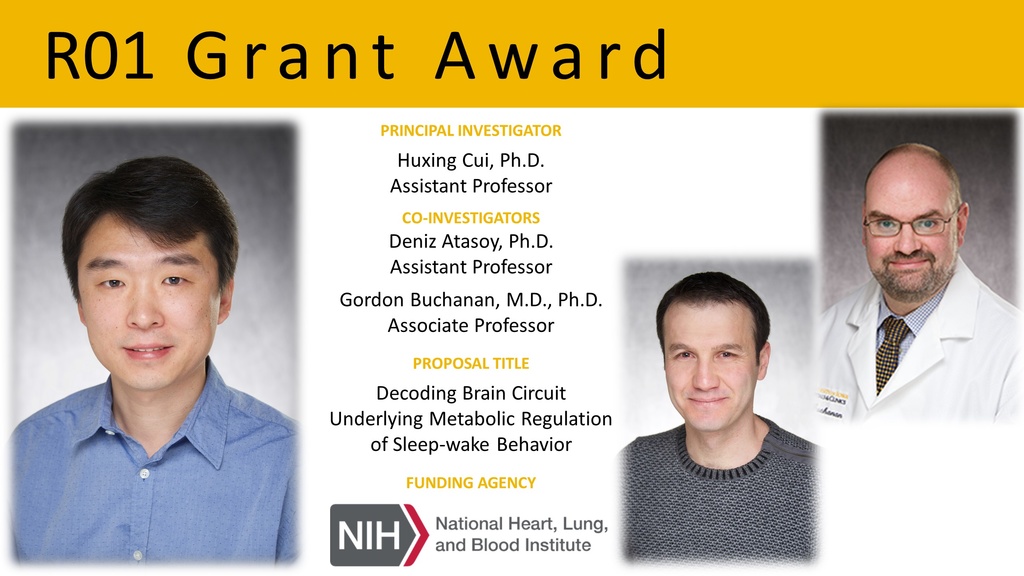News

November - Native American Heritage Month
Monday, November 8, 2021
This month showcases the rich culture of the native people of this land as well as honor the Native American and Indigenous People.
Congratulations to the 2021 Kwak-Ferguson Fellowship Winner Ryan Betters
Wednesday, July 14, 2021
Congrats to Neuroscience Graduate Student, Ryan Betters! Ryan won the 2020 Kwak-Ferguson fellowship award for his research regarding neurodegenerative diseases. Read more about his work in the article attached! Read more here!
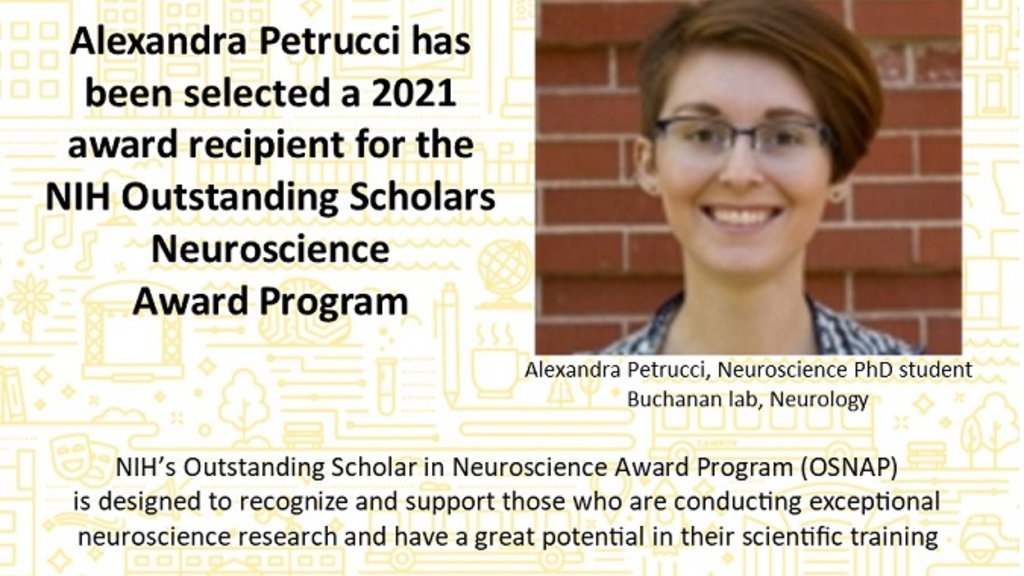
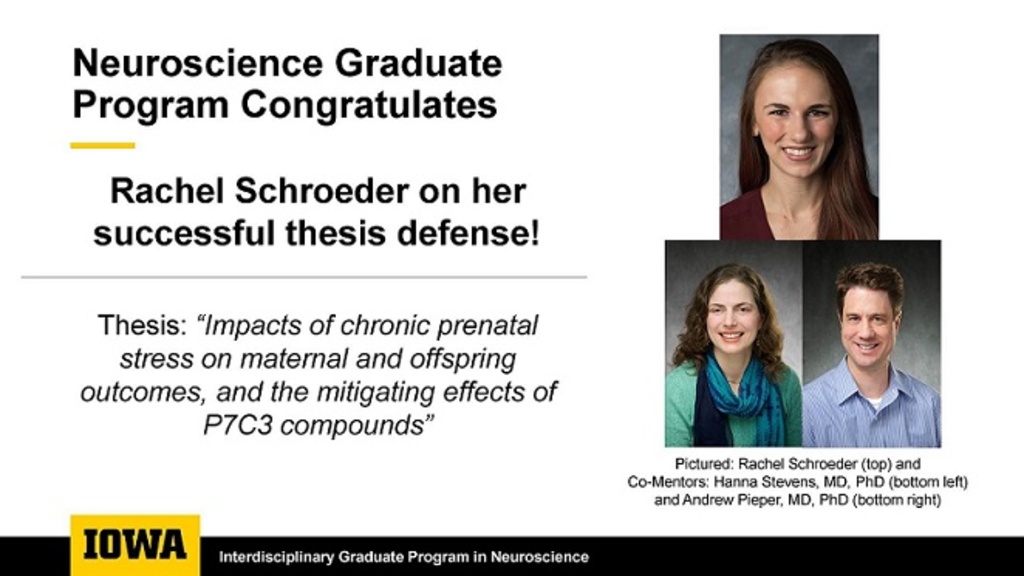
Rachel Schroeder Successfully Defends Thesis
Wednesday, April 7, 2021
Congratulations to Rachel Schroeder (Stevens & Pieper Labs) on her successful thesis defense today, April 7th, 2021!
Rachel Schroeder's Recent Publication Featured in the Daily Iowan
Tuesday, February 9, 2021
Rachel Schroeder (Stevens & Pieper labs, Psychiatry) recently published a first-author publication: “Maternal P7C3-A20 Treatment Protects Offspring from Neuropsychiatric Sequelae of Prenatal Stress”, see more here: https://www.liebertpub.com/doi/10.1089/ars.2020.8227, which was also featured in the Daily Iowan: https://dailyiowan.com/2021/02/04/iowa-and-ohio-researchers-discover-compound-with-the...
Congratulations to the 2020 Kwak-Ferguson Fellowship Winner Margaret Tish
Thursday, September 17, 2020
Congrats to Neuroscience Graduate Student, Maggie Tish! Maggie won the 2020 Kwak-Ferguson fellowship award for her research regarding neurodegenerative diseases. Read more about her work in the article attached! Read more here!
Black in Neuro Week July 27th through August 2nd
Tuesday, July 28, 2020
Black in Neuroscience week is here! The UI Neuroscience Graduate Program is honored to celebrate Black excellence in neuro-related fields. The first #BlackInNeuroWeek is July 27-Aug 2. Current student, Micah Johnson, is featured in one of the profiles Visit https://www.blackinneuro.com/ for details on live online events, daily hashtags and conversations, resources, and profiles.
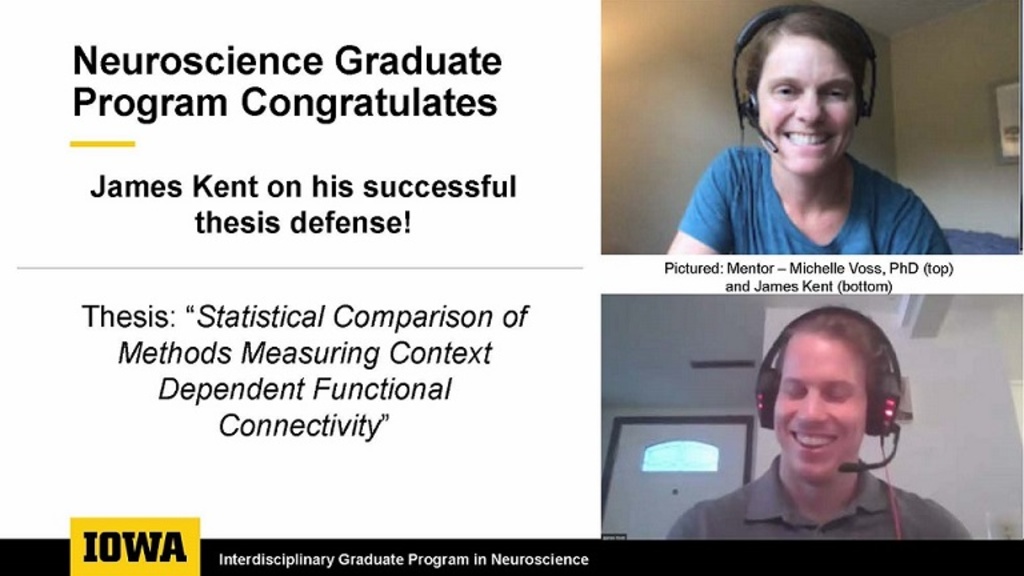
James Kent Successfully Defends Thesis
Friday, July 17, 2020
Congratulations to James Kent (Voss Lab) on a successful thesis defense. James defended his thesis "Statistical Comparison of Methods Measuring Context Dependent Functional Connectivity" on Wednesday, July 15th. Congrats James!
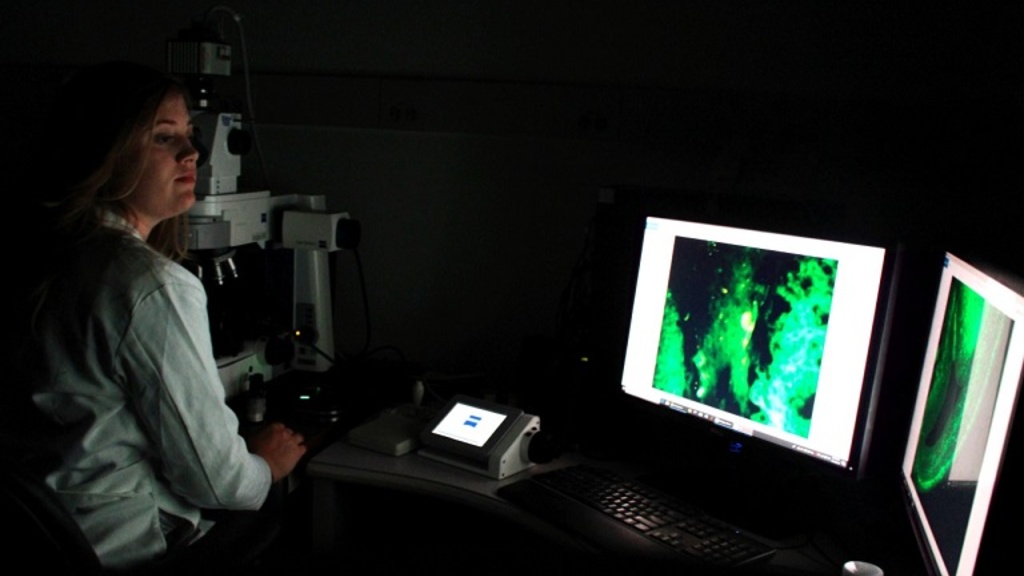
Banu Gumusoglu Received 2020 Rex Montgomery Dissertation Prize
Tuesday, July 14, 2020
Banu, a recent graduate from the Neuroscience PhD program was awarded the Rex Montgomery Dissertation Prize for 2020. Banu is a part of the Stevens Lab. Each year the Rex Montgomery Dissertation Prize recognizes the most meritorious dissertation by a doctoral student conducting research in prevention of disease and/or the translation of research into clinical practice. Students from a variety of...
Pagination
